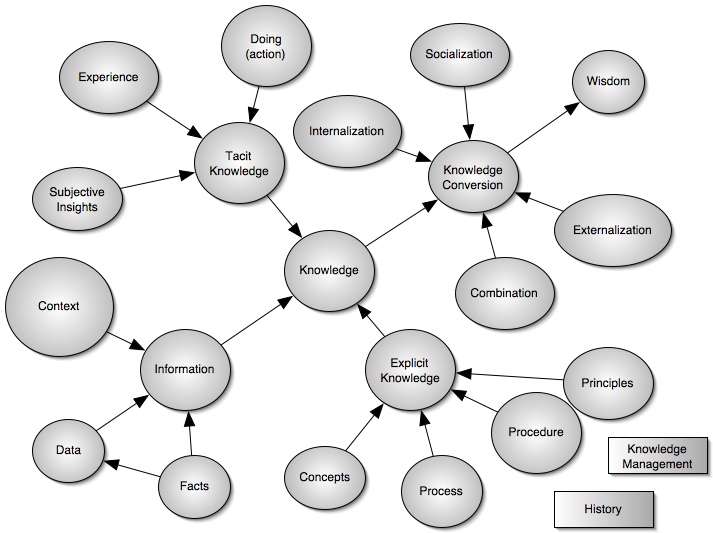Peter Drucker - The Knowledge Worker - 1966
Peter Drucker predicted that the major changes in society would be brought about by information. He argues that knowledge has become the central, key resource that knows no geography. According to him, the largest working group will become what he termed “knowledge workers.”
Every knowledge worker in modern organization is an "executive" if, by virtue of his position or knowledge, he is responsible for a contribution that materially affects the capacity of the organization to perform and to obtain results. - Peter Drucker in The Effective Executive (1966)
Finally, these new industries differ from the traditional 'modern' industry in that they will employ predominantly knowledge workers rather than manual workers. - Peter Drucker in The Age of Discontinuity (1969)
Education and Training for the New Workforce
The defining characteristic of these knowledge workers is the level of their formal education. Thus education and development, and to some degree training, will be the central concern of a knowledge society.
Drucker brought about a new profound respect for the workers in which he believed were assets, rather than liabilities. He taught that knowledgeable workers are the essential ingredients of the modern economy. Central to this philosophy is the view that people are an organization's most valuable resource and that a manager's job is to prepare them through continuing education, development, and training; in addition to freeing them to perform in networks, rather than placing them in strict hierarchies. (Drucker, Collins, Kotler, Kouzes, Rodin, Rangan, Hesselbein, 2008).
Information is data endowed with relevance and purpose. Converting data into information thus requires knowledge. And knowledge, by definition, is specialized. - Peter Drucker.
Next Step
Return to the Information and Knowledge page
Reference
Drucker, P. F., Collins, J., Kotler, P., Kouzes, J., Rodin, J., Rangan, V. K., Hesselbein, F. (2008). The Five Most Important Questions You Will Ever Ask About your Organization. San Francisco: Jossey-Bass.


